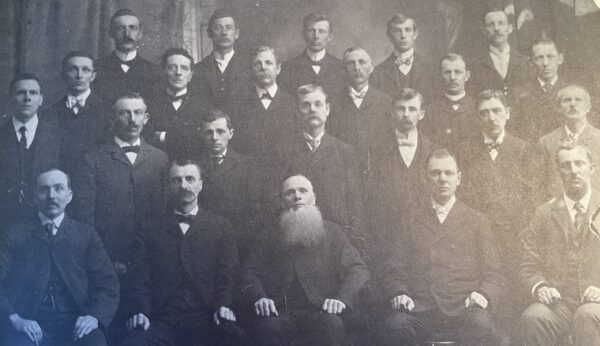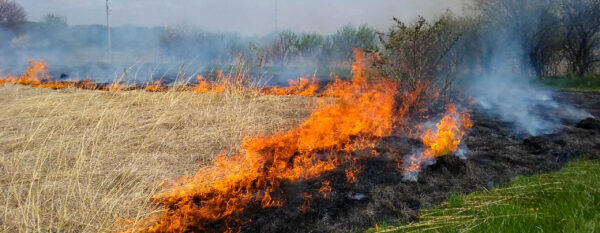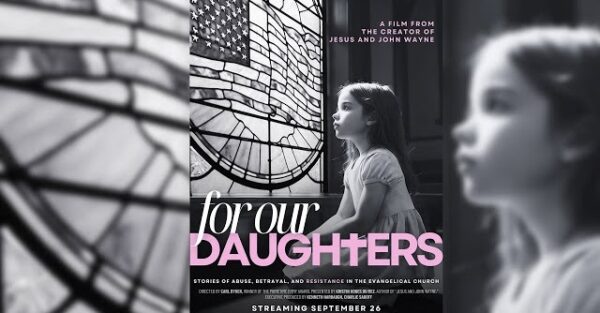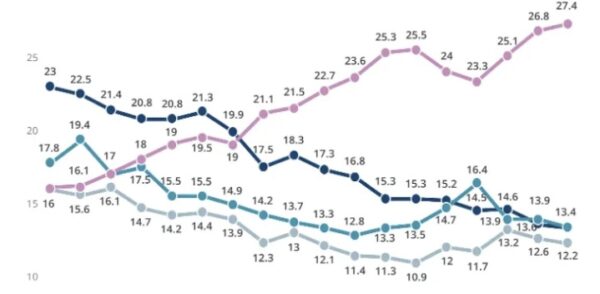Published: Feb 1, 2009
Publisher: Baker Academic
Retail Price: $26.00
Length: 288 pages
Binding: Paper
ISBN: 9780801036163
Words have great significance. They both form and inform us. They convey meaning and shape understanding. They express our highest thoughts and our deepest emotions. But because of their ubiquity, words are easily taken for granted. In Worship Words, part of the Engaging Worship series, professor of English Debra Rienstra and professor of preaching and worship Ron Rienstra make a careful examination of the role and use of language in the worship practices of the church. Their goal is to help students, pastors, and worship leaders come to a renewed appreciation and understanding of words in worship and to inspire them to use words more intentionally–to the greater glory of God and the greater blessing of God’s people.
The book is scholarly–-the result of much field research and theological reflection–-but also highly practical. Its topics include dimensions of language, repetition, authenticity, metaphor, tradition, lament, and worship planning. It is ecumenical in scope, demonstrating understanding and appreciation for various branches of the church while addressing important questions that cut across worship styles and theological and ecclesial traditions. Each chapter includes group discussion questions and exercises for evaluating and creating worship service elements.
Authors
Debra Rienstra
Debra Rienstra is professor of English at Calvin University, where she has taught writing and literature since 1996. She is the author of four books—on motherhood, spirituality, worship, and ecotheology/climate change—as well as numerous essays, poems, and scholarly articles. She writes the fortnightly Refugia Newsletter on Substack, a newsletter for people of faith who want to know and do more about climate. She also writes fortnightly for The Reformed Journal blog, writing about spirituality, climate change, pop culture, the church, the arts, higher ed, and more. Her literary essays have appeared in Rock & Sling, The Examined Life Journal, and Aethlon, among other places.
Ron Rienstra
Ron Rienstra is professor of preaching and worship and director of worship life at Western Seminary in Holland, Michigan. He is an ordained pastor in the Reformed Church in America. He is the author of Church at Church: Jean-Jacques von Allmen’s Liturgical Ecclesiology and numerous articles in Reformed Worship and scholarly journals.
Excerpts
Each chapter concludes with a summary and a series of exercises based on the material in the chapter. The exercises include suggestions for discussion, observation, resource development, and preaching. The following excerpt is from Chapter 7, “Naming God: Meeting the One Who Is.”
Summary Calls to Action
- Analyze the metaphors/images/titles/names for God used in your church’s worship.
- For every name commonly used, find appropriate ways to say yes-no-yes to that name.
- Name, explain, and worship the Trinity.
- Expand the repertoire of names/images/titles/metaphors for God in all aspects of worship language. Explore the Bible’s treasury.
- If possible in your context, reduce the number of gendered pronouns for God. Use gendered titles (such as Lord) but seek ways to diminish the gendered aspect of these names and also seek to use alternatives.
What are the images for God most common in your imagination? In what ways might the Bible expand or challenge your common images?
Choose any Psalm that you know and love. Explore a name for God in order to shape a prayer. Choose one image from the Psalm, and write a prayer in which you name God in terms of the image, then expand the image in praying for the congregation and the world. Remember to speak this image in light of the gospel.
Psalm 23
Example: God, you are a faithful shepherd to us. You know each of us by name, and love us with a fierce, protective love. We ask you to tend the wounds of those who are sick and grieving today, especially…. We ask you to comfort those who are fearful today, fearful of… We ask you to protect those who are in danger today, … Many people in this world do not know your voice. We pray that you will continue to call to them. Let your Spirit speak to them through the church…
Let the shape of the psalm as a whole shape the prayer. Write a prayer that names God in terms of the psalm, then follows the contours of the psalm.
Psalm 1
Example: Judge of the nations, Judge of the heart, all things are revealed to you and nothing is hidden from your wisdom. Teach us to walk in the right paths. Lead us away from all the bad counselors of this world: cynicism, fearfulness, despair, prejudice. Lead us instead into the delight of your ways and teach us to meditate on them. Teach us to pray. As a congregation, plant us like healthy trees near the water of your gracious words. We long to yield fruit for you…
Using an image from the Psalm that especially strikes you and explore an action of God through that image.
Psalm 68:9
You gave abundant showers, O God; you refreshed your weary inheritance.
Example: Dear God, we come to you thirsty, like dry ground. We look to you for all that we need and we wait for your gracious care. Send your Spirit to us, nourishing God, like a drenching shower. Work among us so that, like a fertile field, we might grow good deeds that will feed others in this world…
Variations on this exercise:
Tailor the prayer to a particular place in the service: a call to worship, a prayer for illumination, a congregational prayer, a confessional prayer, and so on. Other passages of Scripture could, of course, form the basis of similar exercises.
Here’s a homiletical exercise, fitting even for nonprofessional preachers: Write a short sermonette in which you explore an unusual image for God from Scripture. Start with a text that has a striking image in it. For instance, consider Exodus 13:21-22 and the image of the pillar of cloud and fire. How can that image speak to us today? Or, explore Luke 15:8-10, the image of the woman and the lost coin from Jesus’s parable. In what ways is God like a determined housekeeper? To get the most out of the exercise, do the following:
- Identify the Scripture text that will be the heart of your mini-sermon.
- Pray through the text, and research anything that puzzles you about it.
- Write a three-sentence paragraph (at most) that simply restates what the text says, and does so well and beautifully. This is the second paragraph of your three-paragraph sermonette.
- Write another three-sentence paragraph, this time in response to asking “So what?” of your second paragraph. This is the third paragraph for your sermon
- Think about your friends, both Christian and non-Christian. What would connect their experience or life to this text? Write another paragraph of no more than three sentences. This is the first paragraph of your sermon.
During a worship service you attend, observe the presence of KINGAFAP. Was this the dominant metaphor system in the service? Were there any elements of the service whose language compellingly challenged the distortions of KINGAFAP, that is, more than a passing reference to God as servant, sufferer, or something other than the distant, masculine ruler? Based on your observations, does this worshiping assembly have a KINGAFAP problem? Now that you are looking for this metaphor system, reflect briefly on the role it plays in your own devotional life. Is it your own dominant image of God?
Compose a new song acclaiming the Trinity. Can we adore the Triune God with the same intimate love with which we adore Jesus? What images can we employ to draw people into worshipful awe at the beauty and holiness of the Triune God?
Reviews
Endorsements
Resources

Homo Phagon: Are We Nothing But Consumers?
We are becoming merely homo phagon—humans who consume, from the Greek phago, to devour. We are all mouth.

Newphoria: An Assortment of Words and Phrases We Need for Modern Life
Of course, things could be worse. You could find yourself in a frightening blank nothingness in which you can’t find any WiFi. You might have fallen into a cyberabyss. It’s a cyberabysmal place to be. You might describe yourself as webvexed.

Barbeque on the Beach
Even if we build various systems and institutions to help us do that lamb-feeding work, every day is still, in essence, an exercise in coming to the beach needy and longing and empty, and finding that Jesus is already there, coals ready, showing us how to find abundance in ways we could not possibly rustle up ourselves. We have no strength to feed others until Jesus feeds us first.

Strong Men are Servants, Not Sadists
Domination and destruction are easy and cruel. Serving, building, creating: that takes humility, which is true strength. So how can we provide a counter-narrative in which we reclaim for men the fundamental wisdom of Christianity: the truly strong are the ones who humble themselves and serve others.

A Tender Turning Point
This is the commemorative hundredth-anniversary book for Alpine Avenue Christian Reformed Church, the church in which I grew up. The anniversary occurred in 1981 when I was not quite sixteen years old, and I admit I’ve lugged this book around all my life but not actually read through it—until last Sunday.

Nothing-But-Virtue Soup
The soup is nothing but beans, veggie broth, and vegetables. OK, there’s a little salt. I say it’s virtuous not with pride but with a sigh. We’re talking Lenten sorts of virtue here. Is it a little boring? Yes. Is it really perfectly virtuous? Of course not. Nothing is. Come on, I’m a Calvinist, and we’re still talking about a food system full of injustices, etc. But the soup tastes pretty good, it’s better for me than a lot of other options, and I don’t really need lunch to be exciting.

Pious Petunia Proffers a Pertinent Parable and Prudent Proposals
Come to think of it, Miss P proposes instead that Canada take over the US. All the US states could become nice Canadian provinces, and we could simply sweep away our current US federal government. Done! All the illegally fired US civil servants and government scientists could be re-hired by the new United States of Canada.

Discourse Trauma
The news media reports on all this, of course, so our little brains are filled with the ugliest discourse-sludge. Here’s my point: the discourse itself is purposely traumatizing.

A Yard Sale for a Church
One realtor suggests there are something like 1100 former churches for sale in the U.S.

Controlled Burn
I wonder what needs a controlled burn in our culture right now, in our churches?

The Enemy Within
The wan plea Why can’t we all just get along? seems trivial and stupid, but it’s actually a good question, one humans have been asking since forever. Maybe the rock-bottom answer is always the same: the primordial sin plaguing us since Cain and Abel. Kin-conflict, kin-hatred, kin-violence.

Get Savvy to Fossil-Fuel Propaganda: A Review of The Language of Climate Politics
Her goal is to equip sympathetic readers with appropriate, fact-based rhetorical strategies in order to counter deceptive rhetoric, especially the subtle kind that sounds sensible but gets co-opted to sustain fossil fuel interests.

I Got a Sunburned Nose for Kamala
I am not a rally person. I do not like crowds. I get quietly anxious merely about the parking situation before any trip downtown. Even so, Ron and I are curious what these rally things are like. Should we go, just to see?

For Our Daughters: We Need to Know
Watching For Our Daughters brought back all my anger. Early on, we see a quick montage of Christian nationalist evangelical influencers peddling their ideology. God wants Christians (well, their kind of Christians) to rule America; democracy is in the way. God made men to be powerful and rule with absolute authority. God made women to be pure and submissive, serve men, and provide them with sexual satisfaction and offspring.

Religious Churn in America: A New Study
Is it true? Is the church going through upheaval? We can truck in vague pronouncements and “vibes,” but we can also look at data. Thankfully, the good people at PRRI just released their new study of the American religious landscape, one that offers some insights, though only on the American scene.

Climate Art: From Exposing to Enthralling
A few years ago, I shared some great examples of climate artists working in music, dance, and performance. Today, I offer some more examples, this time of sculpture and visual media. I’ve been thinking about what art actually does for us at this moment of climate crisis, what purposes art can serve in moving us toward a more just and sustainable world. So far I’ve come up with some verbs: Artists expose, lament, defy, envision, enthrall.

